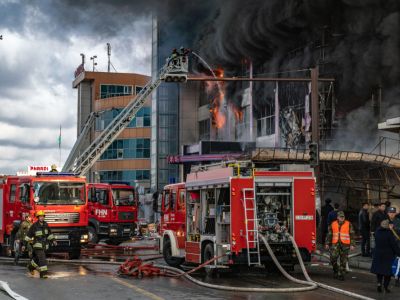The Bosnian Serb parliament met Tuesday to debate a crucial bill on cooperating with the UN war crimes tribunal based in The Hague.
The parliament of the Bosnian Serb entity of the Republika Srpska (RS), the last remaining part of former Yugoslavia refusing to bring war crimes indictees to justice, approved the bill on cooperating with the court on its first reading in late July.
However, as the bill is 30th on a 43-item agenda it might not be formally discussed before Thursday.
The proposed bill would provide a legal framework for cooperation between the RS -- which along with the Muslim-Croat Federation makes up post-war Bosnia -- and the International Criminal Tribunal for the former Yugoslavia (ICTY), requiring the entity's police to arrest war crimes suspects hiding there.
So far, due to lack of cooperation from the Bosnian Serb authorities, any arrests of war crimes indictees have been carried out by Bosnia's NATO-led peacekeeping force.
Meanwhile, an ICTY spokeswoman, Florence Hartmann, told the Bosnian Serb SRNA news agency in The Hague on Tuesday that the tribunal "expects nothing" of the law.
"The (ICTY's) prosecution expects nothing of the law, but we rather expect from Banja Luka authorities to start cooperating," with The Hague tribunal, the spokeswoman for the ICTY's chief prosecutor Carla Del Ponte, told SRNA.
"If the cooperation will start now it is excellent," she said adding that the RS authorities did not need the law to start cooperating.
Following the extradition of former Yugoslav leader Slobodan Milosevic to The Hague in June, the RS authorities were under mounting pressure to start arresting war crimes suspects believed to be hiding on its territory.
The ICTY's two most wanted indictees -- Bosnian Serb wartime leader Radovan Karadzic and his military chief, Ratko Mladic -- are both believed to be hiding on RS territory -- BANJA LUKA, Bosnia-Hercegovina (AFP)
© 2001 Al Bawaba (www.albawaba.com)









